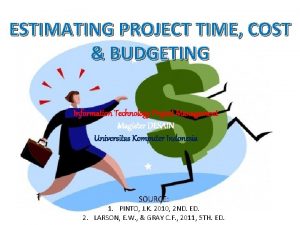Caregivers willingness to accept expedited vaccine research and

- Slides: 1

Caregivers’ willingness to accept expedited vaccine research and intent to vaccinate their children during the COVID-19 pandemic Non-Cognitive Predictors of Student Success: A Predictive Validity Comparison Between Domestic and International Students GLOBAL HEALTH IMPLICATIONS Tyler D. Yan, Ran D. Goldman, for the International COVID-19 Parental Attitude Study (COVIPAS) Group 43% of caregivers are accepting of BACKGROUND • Over 190 vaccinate candidates are in development against COVID-19. • During the pandemic, some have gained fast-track status and two vaccines already have emergency authorization • A predicted vaccine coverage of 55% to 82% of the population is needed to provide herd immunity to SARSCo. V-2 • The CDC estimates that only 40% of children in the United States received the pandemic H 1 N 1 vaccine in 2009 METHODS International cross-sectional survey of parents arriving with their children to the emergency department in the midst of the pandemic 17 Pediatric Emergency Departments Countries (Canada, U. S. , Israel, Japan, Spain, Switzerland) Non-Cognitive of Student Success: 6 Predictors A Predictive Validity Comparison Between Domestic and International Students 7 Languages 48 Survey Questions (English, French, German, Spanish, Japanese, Italian, expedited vaccine testing during a Table 2 Multivariate analysis of predictors associated with caregivers’ willingness to accept expedited COVID-19 vaccine research pandemic, and 65% plan to Odds ratio 1 vaccinate their children against Hebrew) (related to demographic characteristics, information regarding the ED visit, and attitudes about COVID-19) RESULTS 43% Of caregivers are willing to accept less rigorous testing and faster approval of a COVID-19 vaccine 65% Of caregivers are planning on vaccinating their children against COVID -19, when a vaccine becomes available COVID-19. Paper 1 Protect the child Protect others General vaccine acceptance Perceived pandemic severity High risk child or family members Example quote “To give her immunity to COVID 19” ““Herd immunity matters” Paper 2 Number Percent of of available parents comments 492 62. 4% 187 23. 7% “Vaccines work” 109 13. 8% “Seems more deadly of a virus” 66 8. 4% “He has pre-existing lung issues” 54 6. 8% 38 4. 8% tyler. yan@alumni. ubc. ca 12 1. 5% @tylerdavidyan “Actually I’d wait to see how Accepting, but concerns of most people reacted. So would efficacy/safety not get right away but once I was sure it was safe” Desire to return to normal “To get back to school” life No comment 216 @Dr_R_Goldman OR 95% CI Child's age (0. 999 - 1) Survey completed by 0. 641 (0. 529 - 0. 775) mother Survey completed by non 0. 7 (0. 404 - 1. 2) mother-non-father Child's vaccinations are up 1. 72 (1. 29 - 2. 31) to date Non-Cognitive Predictors of Student Success: Caregiver would vaccinate A Predictive Validity Comparison Between Domestic and International Students their child against COVID 1. 84 (1. 54 - 2. 21) 19 if a vaccine existed today Caregiver is worried that 0. 999 (0. 951 - 1. 05) their child has COVID-19 Caregiver is worried that 1. 1 (1. 05 - 1. 16) they have COVID-19 P value 0. 592 <0. 01 0. 197 <0. 001 0. 963 <0. 001 Table 3 Multivariate analysis of predictors associated with caregivers’ intent to vaccinate their children against COVID-19 Odds ratio 1 Table 1 Reasons reported by caregivers in favour of COVID-19 vaccination for their children. Reason to Vaccinate (n = 1005) • The majority of caregivers intend to vaccinate their children against COVID-19, but uptake will likely be associated with child and caregiver demographics and vaccination history. • Public health strategies need to address barriers including providing evidence about safety and efficacy , highlighting risks and consequences of infection in children, and educating caregivers on the role of vaccination. OR 95% CI Child's age (0. 999 - 1) Survey completed by 0. 641 (0. 529 - 0. 775) mother Survey completed by non 0. 7 (0. 404 - 1. 2) mother-non-father Child's vaccinations are up 1. 72 (1. 29 - 2. 31) to date Caregiver would vaccinate their child against COVID 1. 84 (1. 54 - 2. 21) 19 if a vaccine existed today Caregiver is worried that 0. 999 (0. 951 - 1. 05) their child has COVID-19 Caregiver is worried that 1. 1 (1. 05 - 1. 16) they have COVID-19 COVIPAS Group Information (alphabetical) Dr. Sarah Ahmed, MD, Tacoma, USA Dr. Samina Ali, MDCM, FRCPC, Edmonton, Canada Dr. Julie C. Brown, MD, Seattle, USA Dr. Adrienne L. Davis, MD, MSc, Toronto, Canada Dr. Nathalie Gaucher, MD, FRCPC, Ph. D, Montreal, Canada Dr. Gualco Gianluca, MD, Ticino, Switzerland Dr. Ran Goldman, MD, Vancouver, Canada Dr. Mark Griffiths, MD, Atlanta, USA Dr. Jeanine E. Hall, MD, Los Angeles, USA Dr. Matt Hansen, MD, MCR, Portland, USA Dr. Tomohiro Katsuta, MD, Ph. D, Tokyo, Japan P value 0. 592 <0. 01 0. 197 <0. 001 0. 963 <0. 001 Dr. Christopher Kelly, MD, New York, USA Dr. Eileen J. Klein, MD, MPH, Seattle, USA Dr. Eran Kozer, MD, Be'er Yakov, Israel Dr. Shashidhar-R. Marneni, MD, Dallas, USA Dr. Ahmed Mater, MD, FRCPC, FAAP, Saskatoon, Canada Dr. Rakesh Mistry, MD, MS, Colorado, USA Dr. Cristina Parra, Ph. D, Barcelona, Spain Dr. Naveen Poonai, MD, FRCPC, London, Canada Dr. David Sheridan, MD, MCR, Portland, USA Dr. Naoki Shimizu, MD, Ph. D, Kawasaki, Japan Dr. Esther L. Yue, MD, Portland, USA

